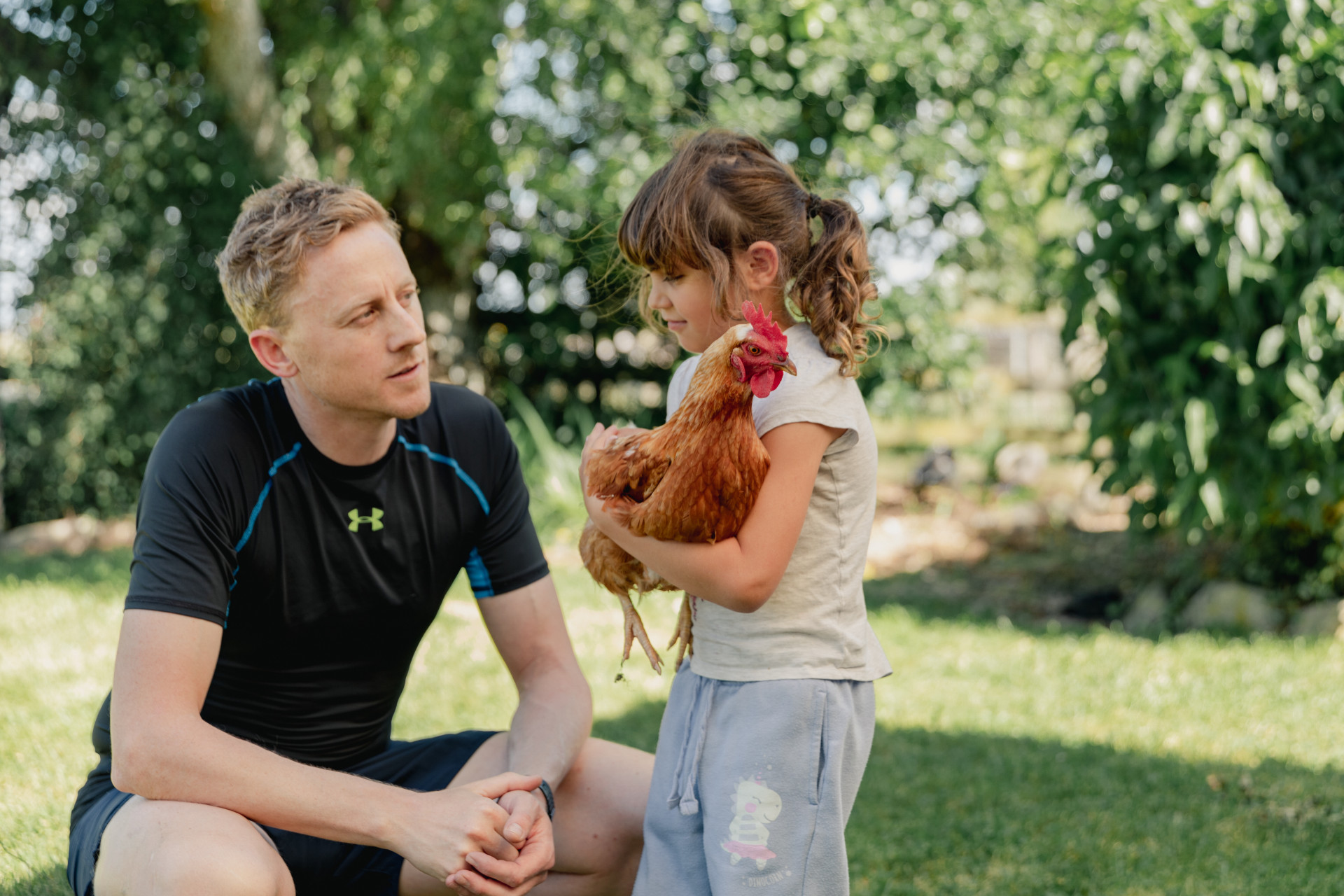Luke Tiller is a husband and father to two young girls. He comes from a long line of sailors, pilots, explorers and World War 2 Vets and describes his early male role-models as hard-core men with no emotion. Raised in a hyper-masculine world of farming and business meant that high-stress environments were his normal.
Luke built a promising career in intelligence which he eventually traded in to become a stay-at home Dad. His career change became one of the most confronting times of his life. Luke realised that he was more comfortable understanding the dark side of ‘bad guys’ than the unhealed parts of himself. Becoming a stay-at-home Dad prompted his journey of change.
Luke is passionate about personal security and self-awareness. Working in intelligence meant he had to understand how an environment might affect his team so that they didn’t become compromised. He applies similar principles to mindfulness.
Mindfulness is being self-aware of how your environments might affect you physically, mentally, emotionally and spiritually. In order to be resilient, you need to know yourself and your reactions in differing situations. When you know, you can mindfully move through discomfort.
Luke believes that the only way to really know yourself is to suffer through transformation. To peel back the layers and commit to a journey of healing. When Luke was considering a role in counterintelligence, an army psychologist confronted him with a harsh reality about his stress levels. Luke thought that was quite normal until he realised that stress took up his capacity to be emotionally available for his wife and children.
I was considering a role in counterintelligence and I realised it's easier for me to understand the bad guys than it is to understand myself. How can I protect our people, if I’m not able to properly look after my own family and myself?
I had a desire to rebalance. I decided to take a year out and get to know my new baby girl.
After six months of being a stay-at-home Dad, things got tough. Years of emotional suppression began to surface for Luke. He described watching the news and being triggered when he saw updates on a case he had been working on. He started to question his choice to leave his job. There was regret, guilt and shame. He would find himself reacting emotionally by yelling or picking up his daughters too quickly and scaring them.
My girls were scared of their loving, devoted and committed father. I had sacrificed so much to be at home with them but I’d also brought something else home with me that was dark. It was freaking me out.
I knew that I couldn’t break out of my cycle of violence until I involved someone else in it. I needed to unpack the triggers with someone and find ways to help.
Luke was referred to a programme in Masterton called Changeability which changed his life. The 16-week programme holds space for men to talk about challenges, learn how to be safer in their relationships and manage their emotions. The group mostly attracts men who are court mandated after prison release – but it’s the framing that makes the programme successful.
Luke says, Changeability isn’t about punishing ‘bad men’. It’s about men growing, healing and becoming changemakers within their community – no matter their story. It was this approach that enabled Luke to become more self-aware and understand how to move through pain safely. It was in his healing that he became more present with his family and less stressed. Overtime, his own change journey inspired him to help others.
I started a peer support group in my community.
I invited my friends around and told them to come as they are. My house is messy, their house is messy. It was about being real. There’s dishes in my sink, the girls are fighting and we all get to see each other as the imperfect fathers that we are.
As the support group started to grow, so did the depth of conversation. They would talk about relationships, life and career issues. Questions like, ‘what is your biggest fear?’ or ‘what is your main concern’ would become normal to ask and answer.
Luke realised that his skills of understanding others and asking deeper questions were powerful in his peer group. He became really passionate about leadership and helping to prevent complex harm in his community. Luke is now five and half years into his journey of being a stay-at-home dad and proudly works as a Community Leadership Coach for other changemakers and community groups.
I have led myself to change first and foremost, therefore I can lead change in others.
We are only human, we make mistakes, but you have to do the work.
We asked Luke what practical tips he has for men on their own journey of change. He suggests taking the time to write a list of all the men in your life. Consider your workplace, sports team, hunting club or family. Think about who, on that list, you might call during a tough time. He encourages doing the thinking before you need it, because it’s hard to make these decisions when you’re in an emotional state. Keep that list on your phone or in your wallet.
He also says to honor your f%&# ups. The journey is imperfect and ongoing. There is no human or man that can walk through healing and change without tripping up. Honour those moments.
Finally, he says to think about where you want to be in a couple of years. Write it down. Think big, and note the details. Then take some time to consider your fears around that vision. When you do this, you’ll identify areas to work on within your journey of change. When you disarm the fears, you can step closer to the life you want to live.
Leave a legacy you’re proud of. Your legacy is your relationships, not money or job titles. For me, I want to help guys be safe, positive role models. I don’t care about making a lot of money.
Every man has the power to change. My only regret is not realising earlier the freedom you can have through the journey of healing and change.
Keen to learn more from Luke? Watch his story or check out the work taking place at Changeability in Masterton to learn how you might be able to lead change in your own community.

